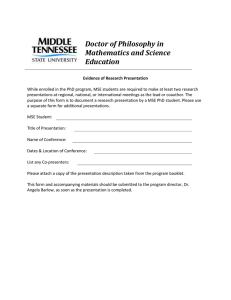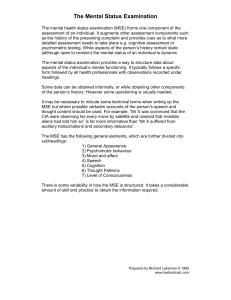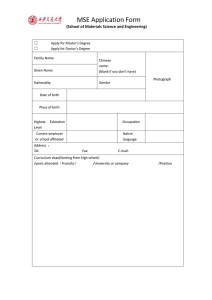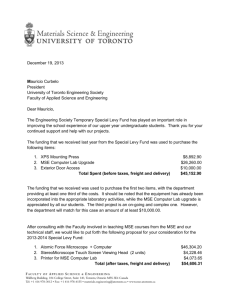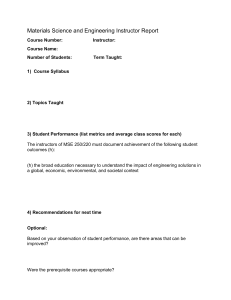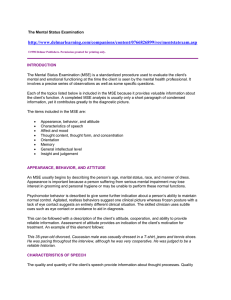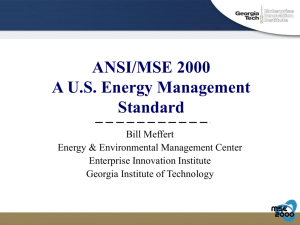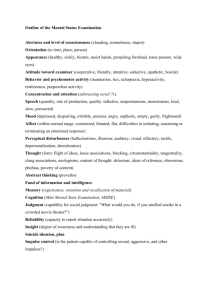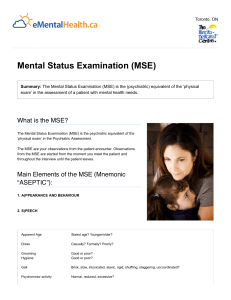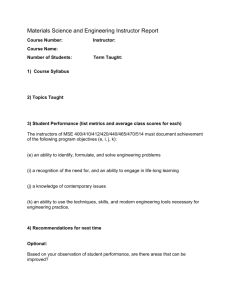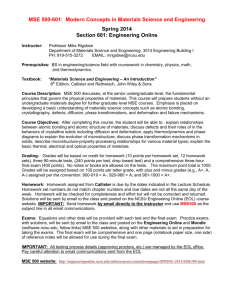102708.RGlick.MSEOutline
advertisement
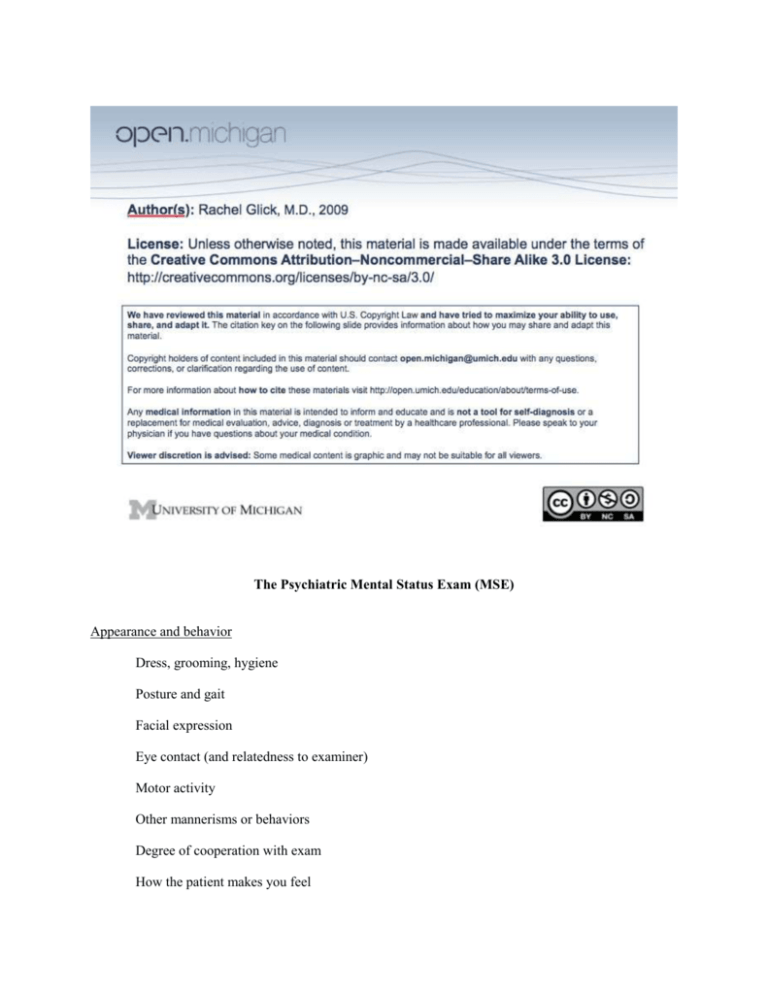
The Psychiatric Mental Status Exam (MSE) Appearance and behavior Dress, grooming, hygiene Posture and gait Facial expression Eye contact (and relatedness to examiner) Motor activity Other mannerisms or behaviors Degree of cooperation with exam How the patient makes you feel Glick: MSE Outline Speech Rate Quantity Volume (loudness) Fluency Clarity (articulation) Emotions Mood: Pervasive and maintained emotional state, sometimes given in patient’s own words. Examples: sad, happy, angry, anxious. Affect: Outward manifestation of mood. How the patient shows his feelings. Predominant Intensity Lability Appropriateness Thought Process or Form: Associations. How ideas fit together, including rate and flow. Poverty of thought – few thoughts Blocking – inability to form thoughts Racing thoughts, flight of ideas – rapid thoughts Loose associations – disconnected thoughts Circumstantiality – lots of extra details but gets to point Tangentiality – connections between thoughts may be apparent, but question is never answered Content: what is being thought Delusions – fixed, false beliefs 2 Glick: MSE Outline Ideas (or Delusions) of reference – belief that some often unimportant event is related specifically to the patient Thought insertion or withdrawal – belief that thoughts are being taken out of or put into head Thought broadcasting – belief that others can hear thoughts Obsessions – distracting, persistent thoughts Compulsions – irresistible urges to perform meaningless tasks Phobias – irrational fears of specific things Perceptions: Illusions: Misinterpretated sensory inputs Hallucinations: Perceiving input in absence of external sensory stimulation Visual Auditory Olfactory Gustatory Tactile (Haptic) Hypnagogic – hallucinations as patient falls asleep or awakens Dissociative States Depersonalization – feeling that one is not oneself Derealization – feeling that the world, people and things around are not real Sensorium and intellectual (cognitive) functions (see attached table) Level of consciousness Orientation Concentration/Attention Memory 3 Glick: MSE Outline Immediate (new learning) Recent Remote Use of Language Comprehension Repetition Naming Reading Writing Fund of knowledge Abstractions Insight Judgment 4
